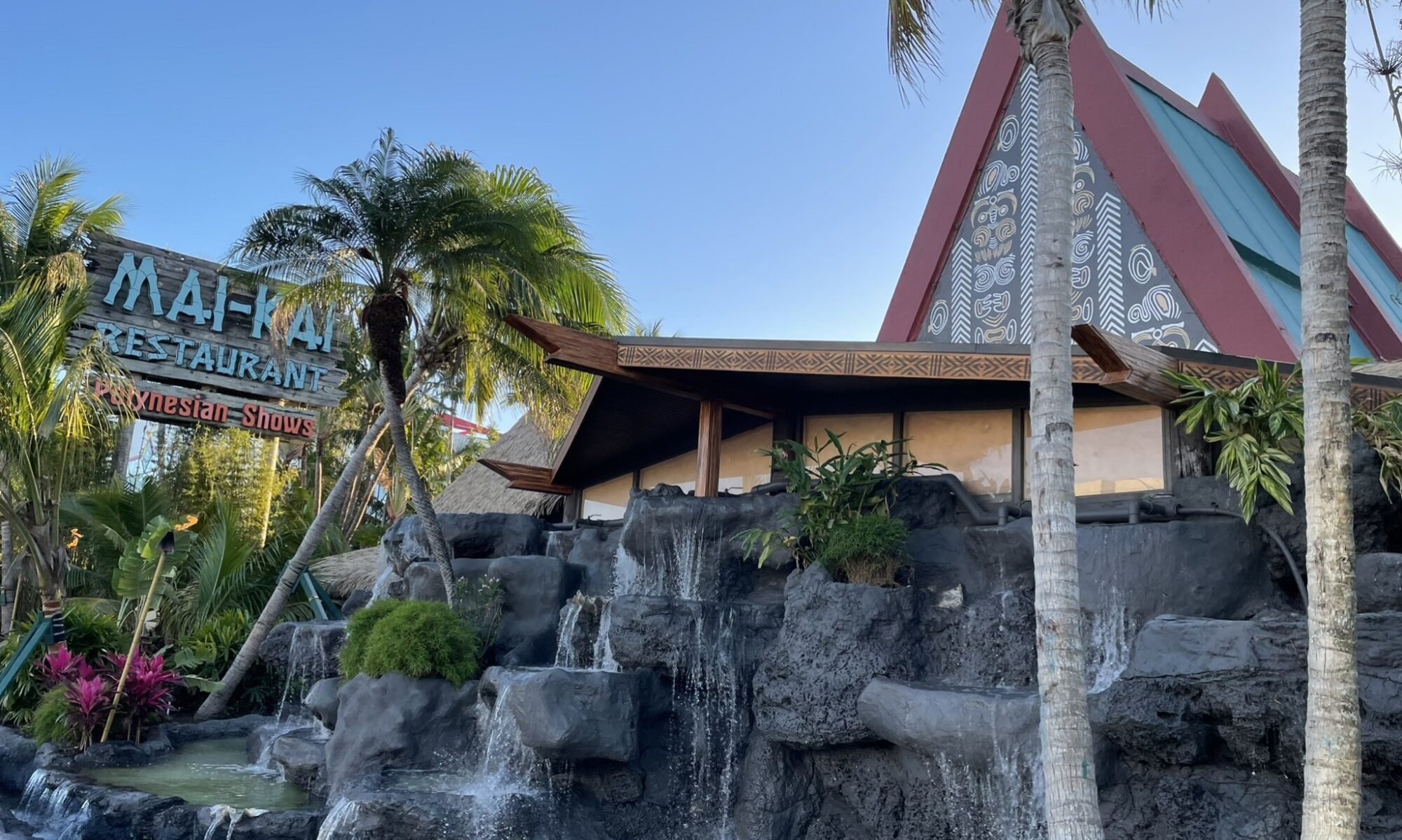Updated March 25, 2025
This blog post will feature continually updated information from official sources at the historic Mai-Kai restaurant in South Florida. It will also include in-depth coverage and photos from journalist Jim “Hurricane” Hayward, along with information gathered from other reliable sources. Bookmark and return for the most accurate and complete guide to the reopening of the Tiki landmark, est. 1956.
• Mai-Kai Restoration & Reopening: Full story and photo archive
UPDATES: Mai-Kai bar and cocktail news, reviews and exclusive insights
LATEST NEWS BELOW: February-March 2025 update: Artists continue working on Mai-Kai design projects NEW
Official sites and social media
• MaiKai.com | Facebook page | Instagram
Facebook group: Join more than 23,000 Friends of the Mai-Kai
• Instagram: Classics of the Mai-Kai
The Atomic Grog: AtomicGrog.com | Facebook | Instagram | YouTube | Bluesky
LATEST EVENTS
Jump to more news below
• Inuhele event recap: Paradise Reimagined: Deep Inside the Mai-Kai Restoration
• Videos: A moment of zen
• Mai-Kai joins Miami Rum Congress festivities
• January 2025 update: Tiki gardens and new dining options open as Mai-Kai menus get a refresh
• Mai-Kai timeline, 1956-2024: Iconic restaurant marks 68 years of Polynesian Pop history
• Is it 1956 or 2024? Forward-thinking Mai-Kai menus sport retro flair
• Mai-Kai grand reopening: Answers to frequently asked questions
• Mai-Kai celebrates grand reopening, return of signature dinner shows
• Mai-Kai hosts preview of bars in advance of grand reopening
• Mai-Kai welcomes Cory Starr as new chief mixologist

February-March 2025 update: Artists continue working on Mai-Kai design projects, upgrading vintage look and feel
Posted March 24, 2025
There has been a lot of activity at the Mai-Kai since our last full update in January, from the completion of the restoration of the waterfalls in front of the iconic A-frame, to the addition of vintage tikis in the outdoor gardens, to the pending installation of new carvings across the property, to a new signature Bora Bora Bar sign and its fascinating back story. This story will cover all those topics and more, hitting all the high points since our presentation at Inuhele in Atlanta (see full story). Also remember to check our separate blog post that covers all the latest Mai-Kai bar and cocktail news, updated with coverage of two special events in March.
RELATED: Mai-Kai joins spirits festival, welcomes brands for cocktail and rum tasting events NEW
Here are the highlights of the continuing renovations and restoration of the restaurant, including new videos and photos.
Historic water features running, new front deck completed

If you thought that the extensive restoration and renovation of the Mai-Kai was nearly complete at the end of 2024, think again. We watched the progress throughout early 2025, culminating with the long-awaited return of the waterfalls that cascade through the rock work in front of the 40-foot A-frame.
The elaborate water features in front of the building along Federal Highway, which date back to the early days of the 68-year-old restaurant, were finally operational by the second week in March. Waterfalls now also envelope guests who walk out onto the new deck added to the front of the Molokai Bar during the restoration.
Bringing the water system back to life was a long, involved process. The system is vintage (aka very old), but the Mai-Kai has been able to restore it with the help of an expert who specializes in keeping such legacy systems running. In addition to separate pump systems in front to the left and right of the entry bridge, there are classic water features surrounding the banyan tree next to the Bora Bora Bar, and also throughout the walking paths in the back Tiki gardens.

Because the Mai-Kai is a local and national historic landmark, tearing out and replacing the vintage systems was not an option. As part of the reimagination, new rock work and waterfalls were added in front of the new outdoor bar. The most ambitious new water feature is the faux volcanic caldera and its water jets at the end of the entry driveway.
Manager Kern Mattei said they had to reboot, then typically replace, multiple aging pumps that had been shut down since 2020. Many hadn’t been working for years prior. Then crews had to inspect and debug every inch of pipe to make sure all the lines were working. They’re still plagued by leaks, but they’re finally all working correctly.
While this work was going on, “Typhoon Tommy” Allsmiller completed the conversion of the outdoor area in front of the Molokai Bar into a small Tiki garden, surrounded by flowing waterfalls. We got our first inkling that something special was coming in the summer of 2023 when Allsmiller restored the beam extensions on front of the bar.

Over the next year, the new deck was built and the outdoor area in front of the bar became a public space for guests for the first time. When the Mai-Kai reopened in November after 5 years and $20 million in improvements, the former fire door became a public exit, but more work was still left to be done.
By late February, the woodwork on the front of the building had been painted, temporary barriers removed, and new bamboo planted to block the sights and sounds of busy Federal Highway. “You can’t see the street anymore,” Mattei said, noting the guests inside the bar are now totally cut off from the real world, as intended. With a few exceptions, you’ll have this same experience throughout the restaurant. This immersion is key to the original design and carried through the restoration.
Continue reading “UPDATES: Latest news and full coverage of The Mai-Kai reopening”
















































